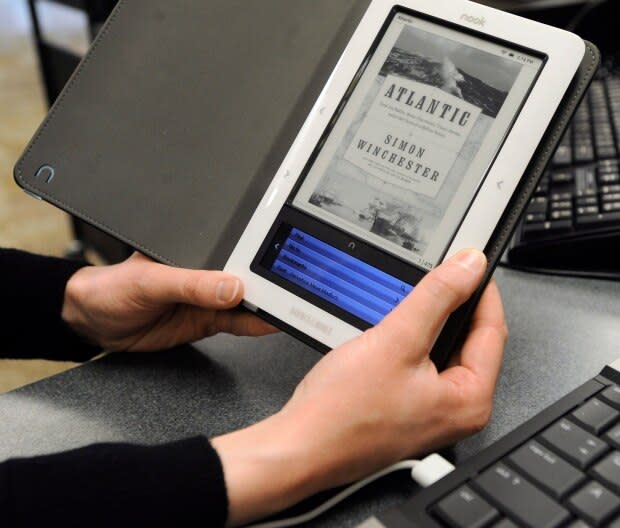Growing digital book demand is pricey for B.C. libraries
B.C. libraries are working to meet the soaring appetite for audio and e-books, but it's proving to be expensive.
The cost is so high, the Okanagan Regional Library is asking local governments to support them in trying to get better access to digital books.
Don Nettleton, CEO of the Okanagan Regional Library, which has more than 32 locations across the southern Interior, said many hard copy books cost the library around $20, while e-books and audio books cost anywhere from $60 to over $100.
Over the past two years especially, Nettleton has seen a rapid increase in demand at the library.
"I think like in anything else, the new technology is being accepted by people. Over the last couple of years at the Okanagan Regional Library, it's gone up 47 per cent from 2016 to 2018 in use."
Noah Genner, president and CEO at BookNet Canada, has been tracking how Canadians have been reading books, and has also noticed a change in sales.
"People are shifting a little bit toward digital across both the e-book and audio book format," Genner said. "But, physical books are still by far the dominant format here in Canada."
Digital book access
However, it's not just the cost and demand the Okanagan Regional Library is struggling with, it's also the ability to access digital books.
Sometimes it takes three or four months after a book is published before it gets access from publishers, Nettleton told Daybreak South host Chris Walker.

"So everybody else gets it for a while before we do," he said.
Whereas for print books, there is legislation that allows libraries to get books at the same time as they go on sale.
"There's not that same protection for the audio and digital," said Nettleton.
Changes needed, says Nettleton
He thinks changes need to be made to the law.
The library is asking municipal leaders to appeal to the federal government and the Heritage Ministry to put pressure on international publishers to encourage them to come up with something that works better for everybody, he said.
So far, they have not heard back from any level of government.
"I think libraries really appeal to a level of playing field for those of any social economic background. So those who are less well-off often can get things that the library that you know people who are well off might go out and purchase themselves," said Nettleton.
Digital donation
The Greater Victoria Public Library is also trying to keep up with the digital interest of its users.
Recently, the library used half of a $45,000 donation from the Friends of the Greater Victoria Public Library, to pay for more digital services. $10,000 specifically went to e-books and audio books.
"Across Canada and here too, what you have to pay to get an e-book is high and you can't just sort of rack up as many as you'd like,"said Irwin Henderson, president of the volunteer run organization.
"It's not like going online and it's just free. There are deals that have to be done with the publishers and that's what makes this contribution add to the stock of what's available, but it doesn't solve the problem of universal access."
The library isn't struggling, but there's a constant effort to meet the demand for digital, said Henderson.
"I think that Victoria has done really well at this. More people visit the site than visit physically. E-books circulate wildly. At the same time, for hardcopy books, we've got the circulation numbers that top the country."
